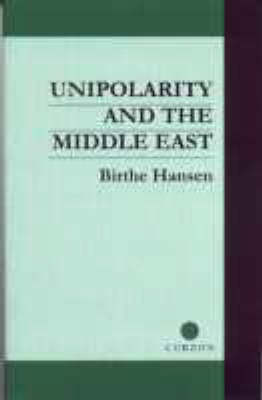The end of the Cold War profoundly affected Middle Eastern politics. In Unipolarity and the Middle East a neorealist model for unipolarity is put forward in order to explain the effects of the end of the Cold War as well as the subsequent international dynamics. The new international dynamics are analysed as 'unipolar', and the theoretical model conceptualizes these dynamics and their implications for international politics. The model is applied to Middle Eastern politics from 1989 to 1996, examining the series of international political events which took place during this period. The events include the unification of the Yemens, Iraq's invasion of Kuwait, the formation of the Multilateral Force, the end of the Lebanese civil war, operation Desert Storm, operation Provide Comfort, the cease-fire in Western Sahara, the beginning of the Madrid process, the Israeli-Jordanian peace treaty and the accords on Palestinian autonomy. Besides launching the first model of unipolarity, the book thus provides both a survey and an explanation of the changes in the Middle East since 1989, including an analysis of the disappearance of bipolarity, the very transformation of 1989, and the emergence of the new, unipolar world order.
- ISBN10 0700709908
- ISBN13 9780700709908
- Publish Date 29 June 2000
- Publish Status Active
- Out of Print 30 May 2021
- Publish Country GB
- Publisher Taylor & Francis Ltd
- Imprint RoutledgeCurzon
- Format Paperback
- Pages 245
- Language English
